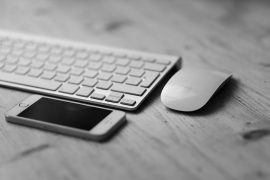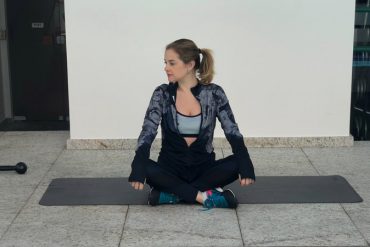Working from home often gets a bad rap as it’s seen as easy, or code for Netflix binging and coffee dates. To some it is the holy grail of work freedom, who doesn’t want to avoid long commutes and define their own working hours? But going freelance has it’s own conflicts, on the one had you have freedom and are not stuck in an office. On the other hand this freedom can cause confusion and solitude. I made the decision to let my office space go around four months ago and even though I am someone who works well alone, I had to retrain myself to work alone and take care of my mental health in the process.
Breaking the taboo:
It’s no coincidence that a number of high profile bloggers have recently started talking about mental health and work. Battles with anxiety, stress and depression are finally no longer a taboo subject (thank goodness). We are programmed to expect so much of ourselves, independent of our profession. And in general, bloggers and others who are trying to grow a business from home are focused and creative by nature, meaning that subject ourselves to high levels of self pressure. Goals and targets are part and parcel of our professional lives, but it’s so important to exercise a little self compassion.

Know when to disconnect
We are always connected, fact! Anyone who has a profissional presence on social media, understands the stress of staying on top of messages and posts. But it is essential to respect our working hours. Having a set time to clock off from work responsibilities is essential for good mental health and should be maintained as much as possible. Obviously it’s not generally possible to turn your phone off when the clock hits 5pm and with events and deadlines on evenings and weekends, we have to be flexible. The rule about when and how to disconnect is not always clear, but it is essential to define your individual limits in order to develop a sustainable work flow.

Self Knowledge
One of the most liberating things about working for yourself is to be able to set your own schedule; in order to do this you need to understand how and when you are your most productive. If you choose to work an eight hour stretch or seperate your day into smaller chunks, stick to it. Make sure your working day coincides with your natural rhythm. If you do your best work in the morning, start the day with your most focused tasks. If you are a night owl, organise your diary and deadlines accordingly.

Get a routine:
Having a routine works wonders for our mental health. There are some people who are able to get our of bed and get straight to work in their pijamas, I am not one of them! I battle with ridiculous feelings of guilt, I need to get up, shower and “start” the day or I end up feeling “wrong” all day. I like to work out first thing in the morning before work. Studies show that morning exercise improves reasoning and helps us work better. There is even a study by a Harford professor (Spark: The Revolutionary New Science of Exercise and the Brain, de John Ratey) that says that exercise is fundamental to achieve high performance levels in tasks that require large intellectual efforts. A quick run, or 30 minutes of yoga practice can prepare you for a productive day.
Another benefit of having a routine is that it helps you to be more productive. If you do something repeatedly, you will be capable of doing it quicker and better. When you find a routine that works for you, stick to it. Routine is a springboard to productivity and there is nothing better than the feeling of mission accomplished that a successful day of work brings.

Human Contact:
IRL (in real life) meetings are so important for helping us to feel connected, but we need to be careful that we don’t fill our diaries with too many back to back meetings and coffee catch ups and then not have enough focused work time. I like to have two or three days in the week where I don’t book in any meetings. These are my writing days and I use the uninterrupted time to do my most creative work. On the other days I have meetings, coffee dates and other social activities to promote the blog.

Respect your working day:
Many people still have no idea what working from home means. DO NOT feel pressure to receive drop in visits from friends or family if it breaks your work flow. If you don’t respect your home office, no one else will. Simply say that you are working and have a deadline or if it’s easier, don’t answer social calls during your working day. You make the rules!
Highs and lows
There will be days when you feel like everything is falling into place and you are your most productive and have nailed that ever elusive work/life balance. There will be days where you feel like you are living your best freelance life, effortlessly gliding between lunches, deadlines and launches. I hate to break it to you, this is not the reality most days. There will be many days huddled over your laptop, hoodie covering your unwashed hair as you battle deadlines and difficult clients. The most important thing in both these scenarios is knowing how to deal with the highs and lows, because there will be both. Aim to keep your mood serene and constant, learn how to begin the day showing gratitude for being alive, for your health and for having work to do. Exercise, be healthy and try to meditate. The best gift we can give our mental health is to have a grateful attitude, as this helps us to combate feelings of demotivation and a lack of inspiration.
Are you freelance? Do you have any tips for taking care of your mental health? I’d love to hear in the comments below!
Eliza xoxo
Credits:
Dess: Mango
Shoes: Chloe
Earrings: Topshop
Photos: Brina Magalhães





